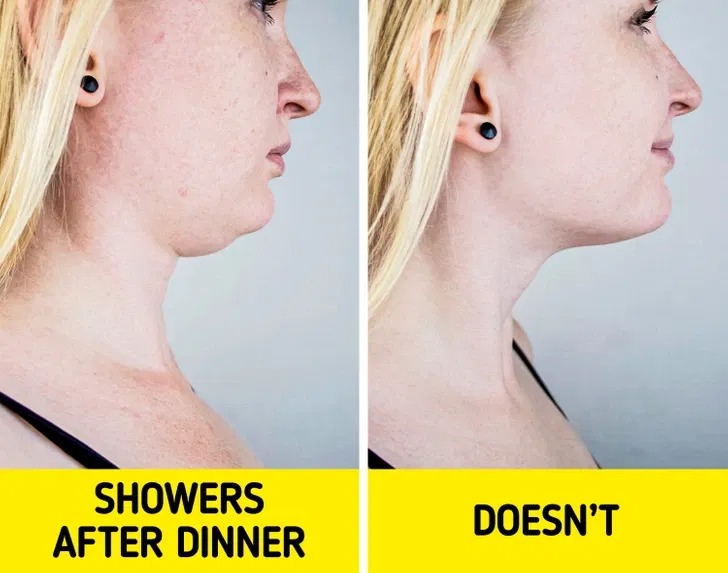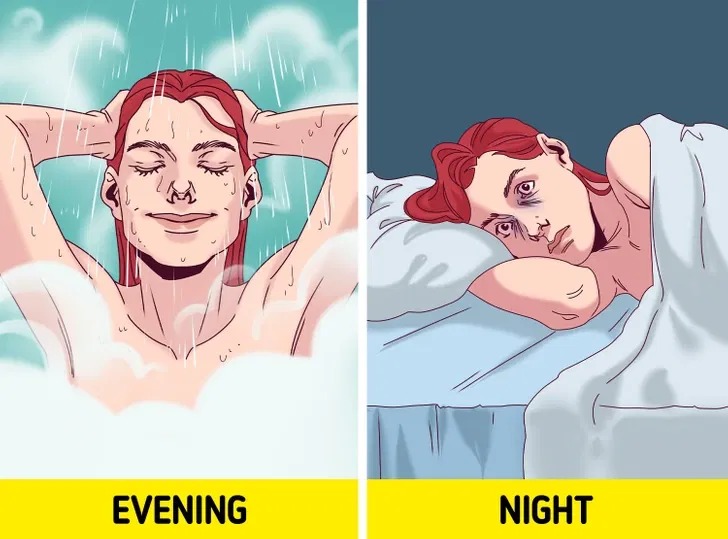Taking a hot shower or bath right before bed may feel like a relaxing way to unwind, but it actually has several negative impacts. Let’s dive into why showering before sleep might not be as beneficial as we once thought.
1.It Might Affect Your Digestion

After a delicious dinner, it’s common to want to unwind with a hot shower. However, taking a shower immediately after eating might affect your digestive system. It’s generally recommended to wait at least 30 minutes after a meal before showering. This allows your body to focus on digestion and reduces the chance of discomfort.
2. Wet Hair Could Lead to Scalp Issues

When you shower right before bed, your hair may still be damp when you lay down. Sleeping with wet hair can create a warm, humid environment on your pillow, which can encourage the growth of bacteria and fungi. Over time, this may lead to scalp problems like irritation or dandruff. It’s best to ensure your hair is fully dry before going to bed.
3. Hot Showers Can Interfere with Sleep

Your body naturally cools down as it prepares for sleep, signaling that it’s time to rest. A hot shower, however, raises your core temperature and can confuse your body’s natural rhythm. If showering is a must before bed, try to do so at least an hour or two before you go to sleep to avoid disrupting your body’s temperature regulation.
4. Potential Effects on Blood Pressure

Hot water can cause a temporary rise in blood pressure, which could be a concern for people with pre-existing heart conditions. While this may not cause immediate harm for healthy individuals, it’s important to be cautious if you have heart issues. If you notice your heart racing or you feel uncomfortable after a hot shower, you may want to reconsider the temperature of the water.
Conclusion:
While a hot shower before bed can be relaxing, it’s important to be aware of how it can affect your body. If you want to improve your digestion, prevent scalp issues, and ensure a restful night’s sleep, consider adjusting your showering habits. Allowing time after eating, drying your hair thoroughly, and giving your body time to cool down before bed are simple adjustments that can make a significant difference. For those with heart conditions, it’s best to avoid extremely hot showers or consult a medical professional for personalized advice. By taking these factors into account, you can enjoy a more comfortable and beneficial bedtime routine.
